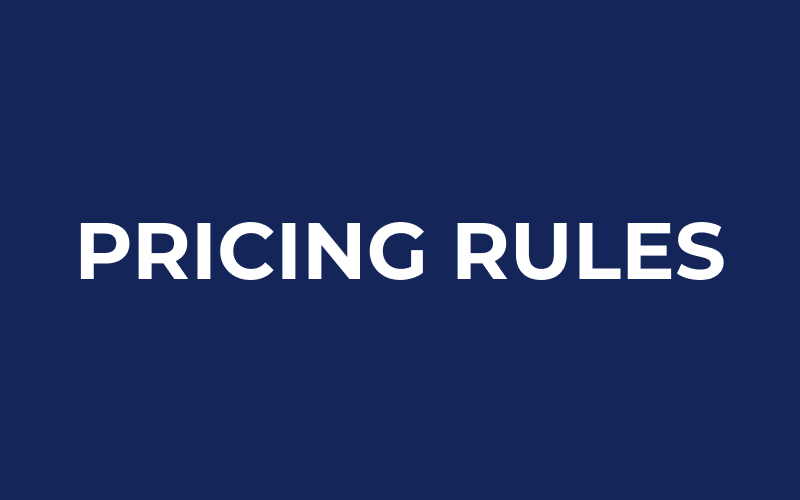
Pricing rules
Pricing rules in ecommerce and retail
Pricing rules refer to a set of guidelines or parameters that ecommerce and retail businesses use to determine the prices for their products and services. These rules are designed to ensure that prices are fair, competitive, and profitable for the business and they can be based on various factors such as cost of production, market demand, competition, and target profit margins.
In ecommerce and retail businesses, pricing rules play a critical role in determining the prices of products. For example, a business may have a pricing rule that states that the price of a product should be set at a certain percentage above its cost of production. This rule ensures that the business is able to make a profit while still being competitive in the market.
Another example of a pricing rule is one that states that prices should be lowered during certain periods of the year, such as during a sale or clearance event. This type of rule helps businesses to increase sales and move inventory that may not be selling as well.
Pricing rules can also be used to set prices based on the competition. A business may have a rule that states that their prices should be within a certain range of their competitors’ prices. This helps the business to remain competitive in the market without sacrificing too much profit.
Summary
Pricing rules are a set of guidelines that businesses use to determine the prices of their products or services. These rules can be based on various factors such as cost of production, market demand, competition, and target profit margins. Pricing rules are important in ecommerce and retail businesses as they help businesses to remain competitive while still being able to make a profit.

